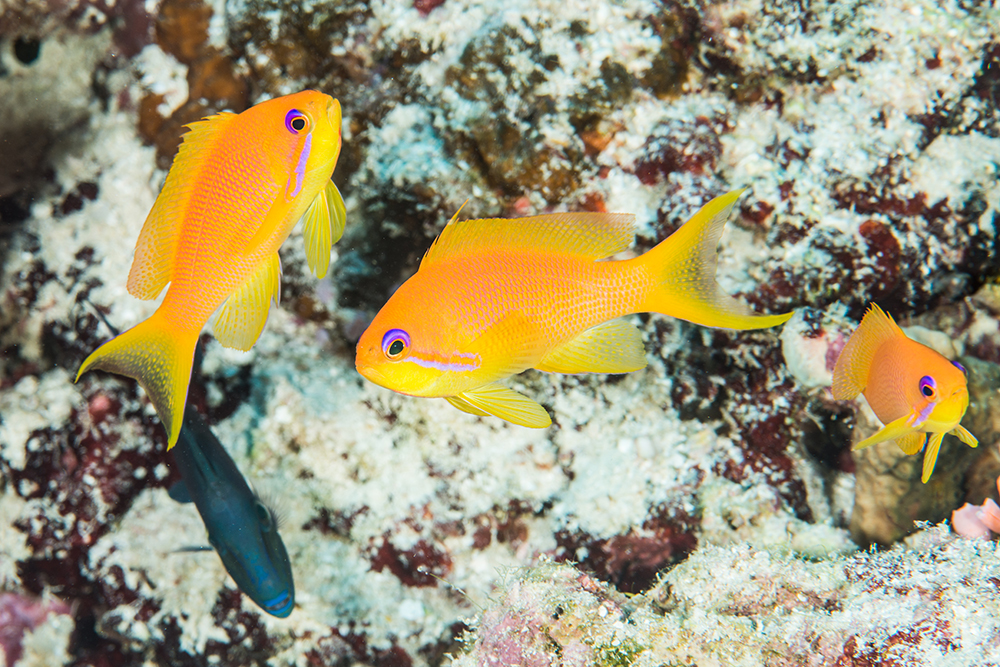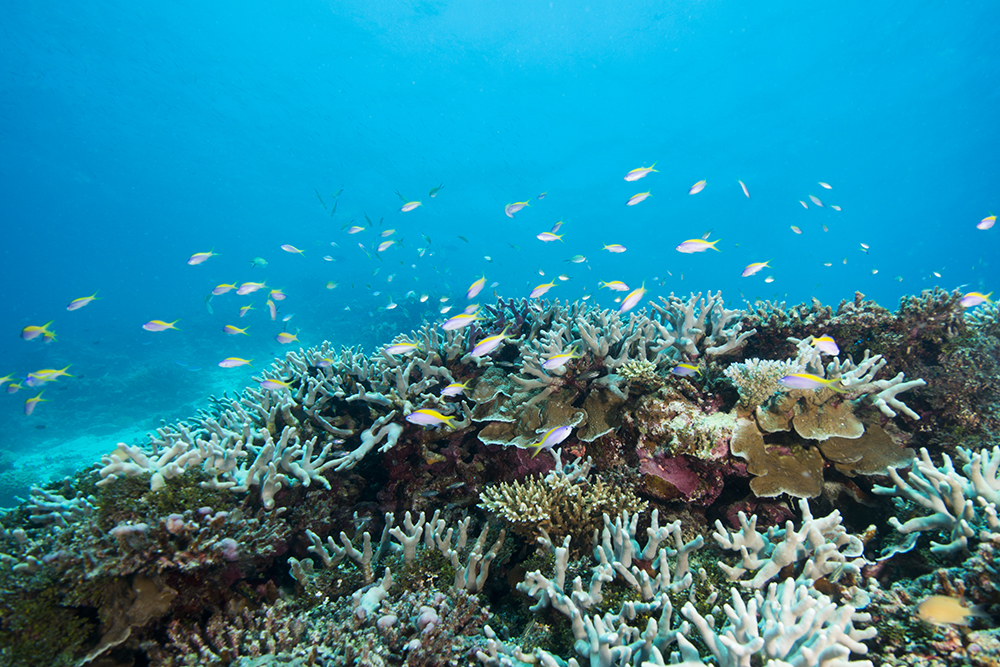 In a recent paper from the ARC Centre of Excellence for Coral Reef Studies in Australia, researchers have offered new hope that reef fish may be better able to survive in more acidic oceans than previously thought.
In a recent paper from the ARC Centre of Excellence for Coral Reef Studies in Australia, researchers have offered new hope that reef fish may be better able to survive in more acidic oceans than previously thought.
Previous studies have shown behavioral changes in fish in response to higher concentrations of carbon dioxide. However, when researchers refined their experiments to include more natural daily variations in CO2, the fish were able to recover during the night when CO2 levels are at their lowest.
In a media release, lead author Michael D. Jarrold provided several quotes:
“Our data suggests that these natural daily changes in water chemistry are enough to provide fish with a recovery period, reducing their sensitivity to higher carbon dioxide levels,”
“It’s the first time these dynamic natural conditions have been reproduced in a laboratory setting to test their potential influence on the behavior of coral reef fish,” explained Mr. Jarrold.
“We are thrilled about what we’ve found,” he added. “Our results provide a greater level of optimism for reef fish populations in the future.”
Reference:
Michael D. Jarrold, Craig Humphrey, Mark I. McCormick, Philip L. Munday. Diel CO2 cycles reduce severity of behavioural abnormalities in coral reef fish under ocean acidification. Scientific Reports, 2017; 7 (1) DOI: 10.1038/s41598-017-10378-y
You can also read the paper online:
http://www.nature.com/articles/s41598-017-10378-y









0 Comments